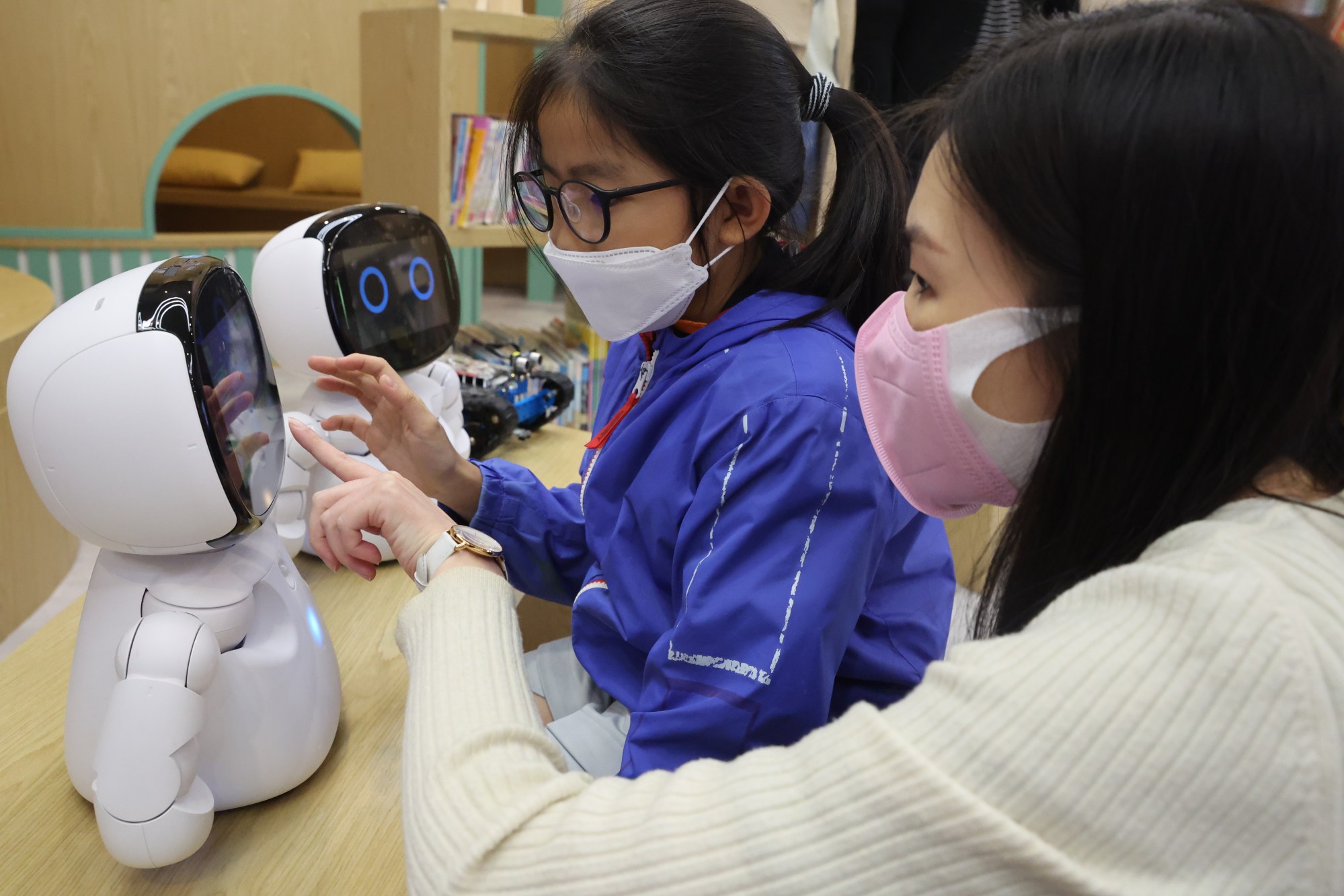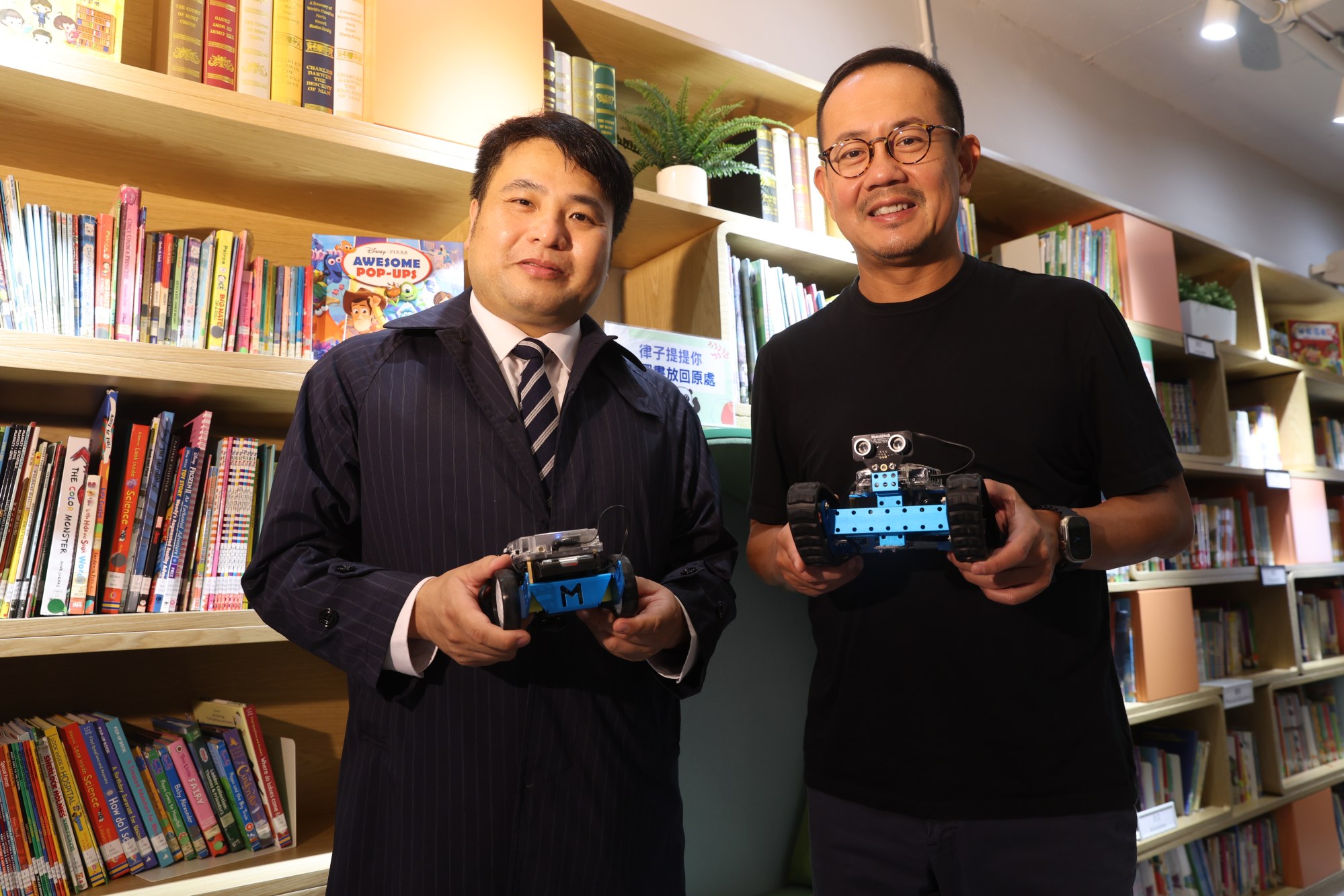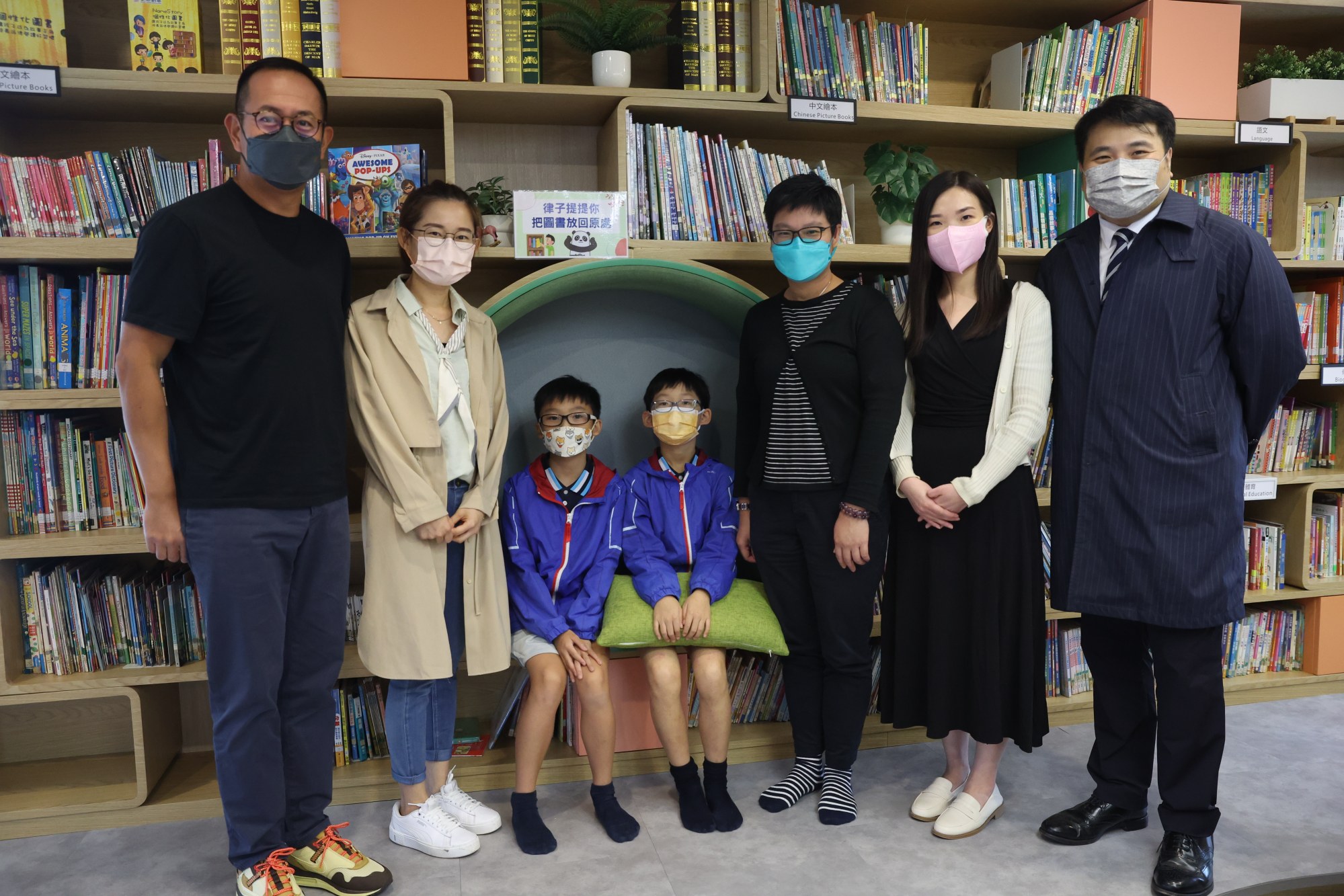
Hong Kong charity’s STEM programme puts real-world solutions into the hands of disadvantaged students
- Supported by fundraising drive Operation Santa Claus, one Hong Kong charity puts pupils from low-income families at the heart of its mission
- Its founder vows to ‘leave no children behind’ in educating the city’s next generation of inventors
Bursting with creative energy, two 11-year-old boys enthusiastically show a school visitor some of the mobile apps they have developed, including multilingual translators and number-guessing games, under an innovative education initiative.
“I’ve learned how to design apps from a STEM education programme,” said Ian Li Sze-ip, a Primary Six student. “What’s more, it has inspired me to develop apps that can help people, such as those for multichannel communications including messaging and emailing.”
His classmate Hugo Lai Yat-jun has also been keen to use STEM to improve everyday life since joining the same programme. “Sometimes I will look around and see if I can design an app to make our lives better,” he said.

STEM is an approach to learning and development that integrates the areas of science, technology, engineering and mathematics. The focus on hands-on learning with real-world applications helps develop a variety of skill sets, including problem solving and creativity.
The boys’ mothers noted their sons’ newly developed interest in exploring STEM solutions to daily-life problems.
“Hugo’s horizons and vision have been broadened,” his mother said.
Li’s mother observed similar changes with her son. “He has acquired a lot of knowledge that is not taught in the classroom.”

The programme is being provided to the boys’ school, Asbury Methodist Primary School, by Hong Kong Children In Need Foundation Limited (HKCIN), a charity aiming to help disadvantaged children realise their full potential and gain access to higher-quality STEM education.
Asbury Methodist is one of the three primary schools covered by the foundation’s “STEM Maker in School” project.
“The programme has helped equip our teachers with the knowledge needed for STEM education. For example, they have learned how to design apps and taught it to the students. We note that the students are now finding plenty of room for their creativity,” said Asbury Methodist principal Cheng Ka-ming.
“The students have also developed a greater motivation for self-regulated learning and better problem-solving skills, as reflected in the good results they have achieved in external competitions, be it VR [virtual reality], AR [augmented reality], drones or robotics,” he added.
Hong Kong dance academy provides arts workshops to neurodiverse students
HKCIN is now planning a similar, but enhanced, project titled “INventoo - STEM Inventors in School Project”.
The new three-year initiative, which begins in May 2023, will be delivered to three local primary schools, whose student populations have a large number of underprivileged pupils. As well as teachers and children, it will also involve parents, who are not covered under the current project.
“We are planning to provide quality STEM education for underprivileged students from low-income families,” said HKCIN founder Matthew Ho Tak-pong.
“STEM education is still relatively new in Hong Kong. Many schools may not have the required resources or expertise for it, while STEM tutoring classes outside school may not be affordable to low-income families,” Ho said.
“On the other hand, most underprivileged students’ parents are relatively less educated and might not appreciate the importance of STEM education to their children’s future lives and careers,” he added.
More than words: Hong Kong charity for dyslexic kids aims to build children’s confidence
It was crucial to engage parents, he said, as their involvement and understanding could change their child’s future. “We want to build confidence in the parents so they will trust their children to become the next generation of inventors.”
“We aim to leave no children behind in STEM education by equipping the schools, teachers, students and parents with relevant knowledge and skills and the correct mindset,” Ho said.
“We hope that after participating in our programme our partner schools will develop on their own and sustainably in STEM education,” he added.

Asbury Methodist appears to be going in that direction.
“First, we worked with HKCIN to organise STEM activities for our students. Then we introduced STEM elements into general education for Primary Four students. We hope to extend this to all grades eventually,” Cheng said.
The foundation’s current and coming STEM education projects are both funded by Operation Santa Claus (OSC), an annual fundraising drive by the South China Morning Post and public broadcaster RTHK. Marking its 35th anniversary this year, OSC has raised HK$353 million (US$45 million) since its launch in 1988 to support the Hong Kong community through 323 projects. This year, 15 charities are benefitting.
